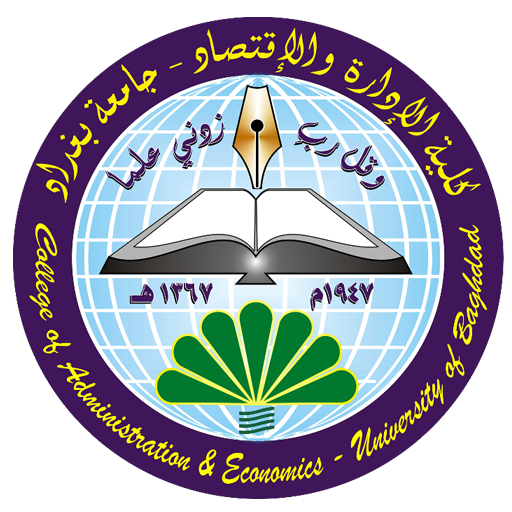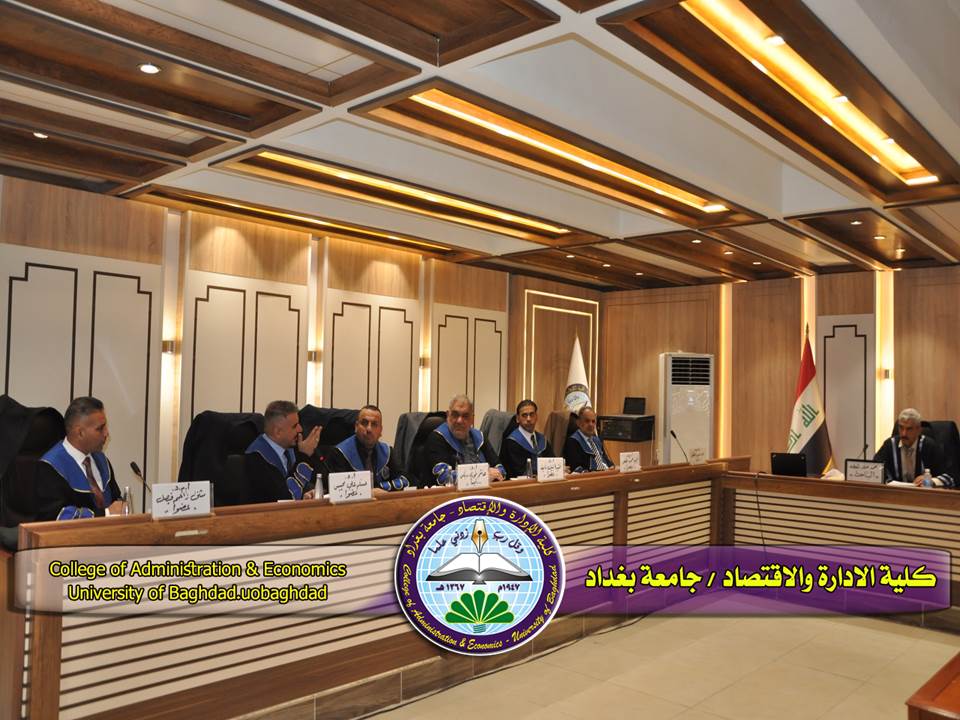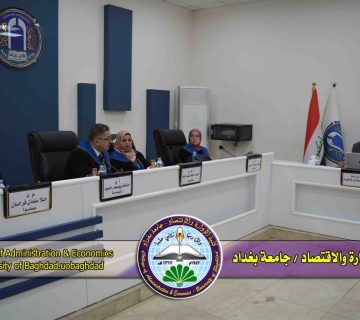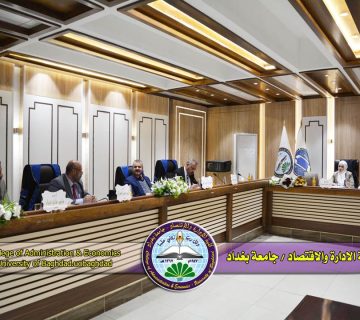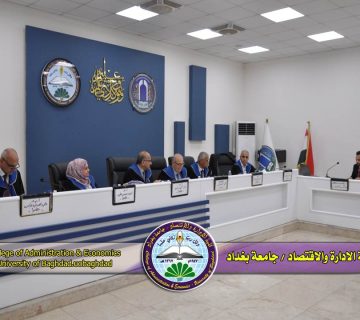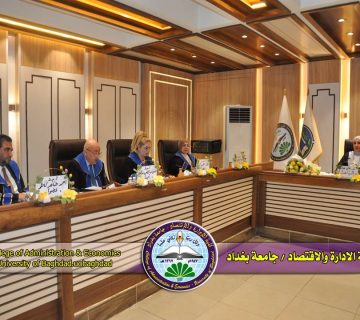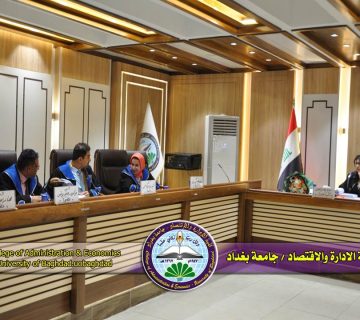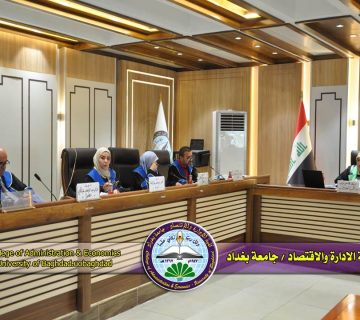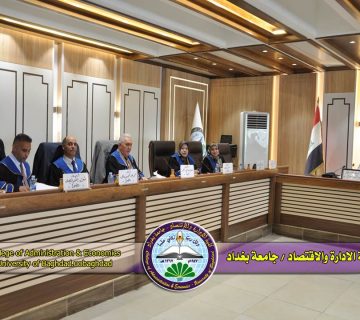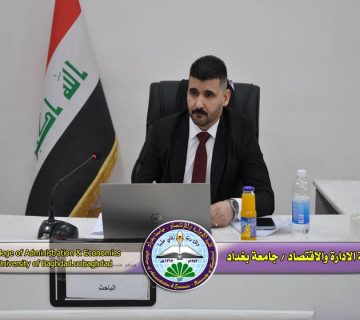The College of Administration and Economics at the University of Baghdad discussed, a PhD dissertation in field of Public Administration by the student (Mohammed Imad Raoof ) and tagged with (Sustainable Human Resource Management and Its Impact on Organizational Success: An Analytical Study at the University of Technology with the Mediating Role of Knowledge Dynamics ) , Under supervision of (Prof.Dr.Ali Hassoun Fandy )
The present dissertation aimed to examine the impact of Sustainable Human Resource Management (SHRM) on organizational success at the University of Technology, with the partial mediation of knowledge dynamics. In addition, it sought to diagnose the university’s level of attention to the research variables and their dimensions, in order to provide recommendations that support the adoption of best practices related to these variables.
The researcher adopted a descriptive research methodology and applied it within the University of Technology. A stratified purposive sample of (331) faculty members—holding the academic ranks of Professor, Assistant Professor, Lecturer, and Assistant Lecturer—was selected. A questionnaire was distributed to the sample, and (322) responses were retrieved, of which (318) were valid for analysis. The questionnaire was further supplemented with interviews, secondary data, and direct observations.
For the statistical analysis, the researcher utilized the statistical software packages SPSS (V.26) and AMOS (V.25), relying on a range of statistical methods including: normality tests, exploratory factor analysis (EFA), confirmatory factor analysis (CFA), validity and reliability testing, mean, standard deviation, relative coefficient of variation, relative importance, Pearson correlation coefficient, simple linear regression, and tests of indirect effects among the research variables. These methods were used to test the research hypotheses derived from the primary research questions.
The statistical analysis yielded several key findings, most notably that the University of Technology demonstrates a clear interest in achieving organizational success. This has been pursued by employing SHRM both directly and indirectly—through the partial mediation of knowledge dynamics. The mediation relied particularly on intellectual knowledge, spiritual knowledge, and advanced knowledge dynamics, all of which contributed to strengthening the relationship between SHRM and organizational success.

